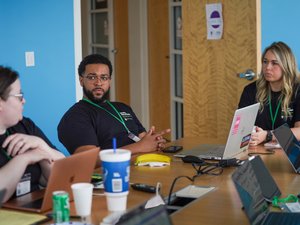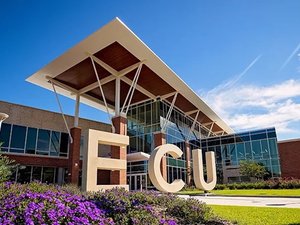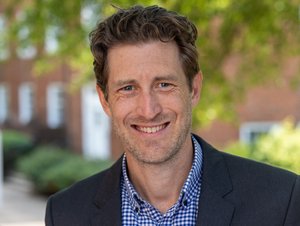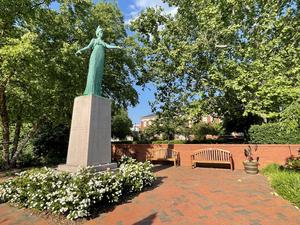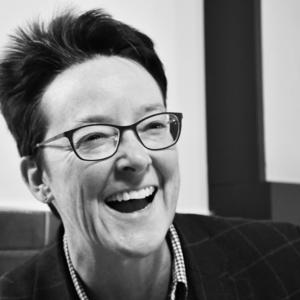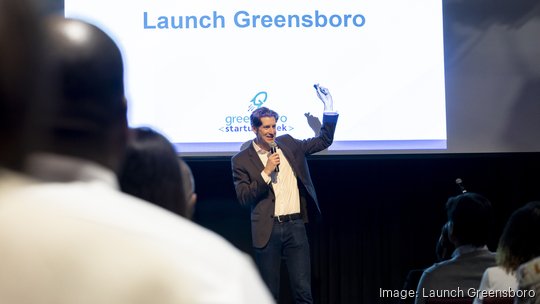
Joey Cheek isn’t naïve when it comes to assessing Greensboro’s entrepreneurial scene.
When Cheek took over as executive vice president of entrepreneurship at the Greensboro Chamber of Commerce in October, he inherited a slate of programming, more than 60 experienced mentors and an advisory board.
What he wants to do with his position is different than what has been done before. Less than six months on the job, Cheek developed and ran the city’s first-ever Startup Week, a summit of educational and community events around entrepreneurship. He’s also actively pursuing about $8 million in ecosystem grants to help realize his vision.
It’s like running a startup to build startups, he said.
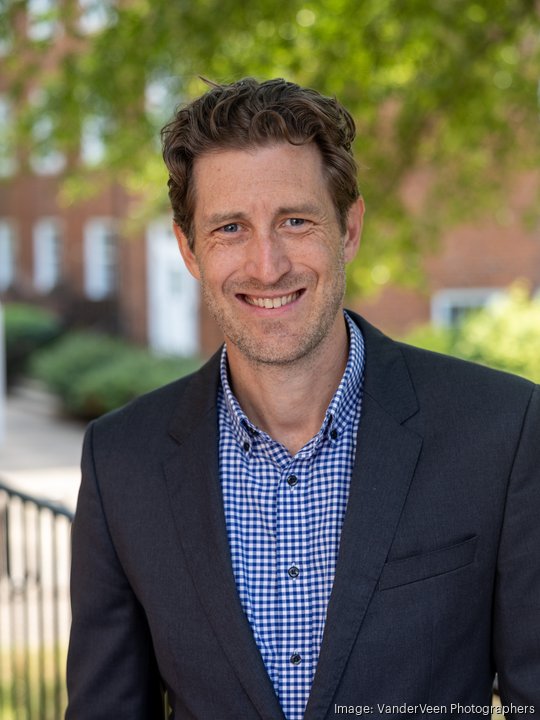
The Greensboro native is probably best known for being an Olympic champion in speed skating. But he’s more than his athletic abilities; Cheek has a background in software development and has founded and led two companies. The first was a streaming platform for sports, which Cheek said ended because he was a "quintessential first-time founder" who did not want help from others and ultimately ran out of money. He began his second, SmartSolar, in 2022. Cheek sold his equity in that company, which specializes in residential solar power, back to his co-founder last October because he was ready for another challenge.
Cheek told Triad Business Journal that Greensboro has got its foundation right in educating entrepreneurs and small businesses and that while he wants the existing programs to evolve, there’s a bigger piece of the puzzle missing in the city’s entrepreneurial ecosystem.
Here’s how he plans to find that piece.
This interview has been edited for clarity and brevity.
Let’s start with the big question: What is your goal as EVP of entrepreneurship? To launch scalable companies. The first pillar of that is working closely with N.C. A&T State University and UNC-Greensboro on tech transfer.
What’s tech transfer? It’s the process of taking research and commercializing it. There’s research done at the university that’s usually protected by patents and by trademarks. It’s usually owned by the university or by the university and the professor jointly. It’s usually fundable at some level by public money as well as private money.
So why start building an ecosystem with research that can be commercialized? It’s a successful model that’s done all over the place. Greensboro is underperforming on the number of successful companies that have come out of research.
There’s a lot of research money – $147.4 million at A&T and $67 million at UNCG. And [A&T] is on the cusp of becoming a Research-1 university, which means they’ll be in the top tier of federal funding, so we can see a change in the amount of federal research. If we start to put the ecosystem together now, as more money is coming in and that research is coming online, we’ll already have the systems and people in place to start going. But if we wait, it’ll be a five-year loss.
There’s also a lot of tailwinds. NCInnovation is a $500 million program for this exact thing and the federal government and the National Science Foundation have all kinds of funding for this exact purpose.
What are some of the weaknesses of the Greensboro ecosystem and how will you address them? In Denver, Silicon Valley, New York and Los Angeles, for example, you can walk into a room with an idea and you can find a technical co-founder, engineers, experienced marketers and investors. You can walk in with an idea and leave with a company.
We don’t have anything like that. We don’t have the density of founders. We don’t have their first eight employees [of experienced engineers, marketers or sales]. It’s all getting the people and training up on our own. This is one of the long-term big challenges.
We’re going to be doing more and more training programs and bringing experts from other places and having them talk to our community.
We’re going to have to start recruiting entrepreneurs in the same way that the chamber recruits companies. There’s no more megasites. Chamber CEO Brent Christensen has said that startups are our next megasite [in terms of economic and job growth].
How will you know you’re succeeding? Once we start seeing a couple companies raise a seven-figure seed round, I think you will feel a palpable excitement and people will go, “oh, this is possible here.”
